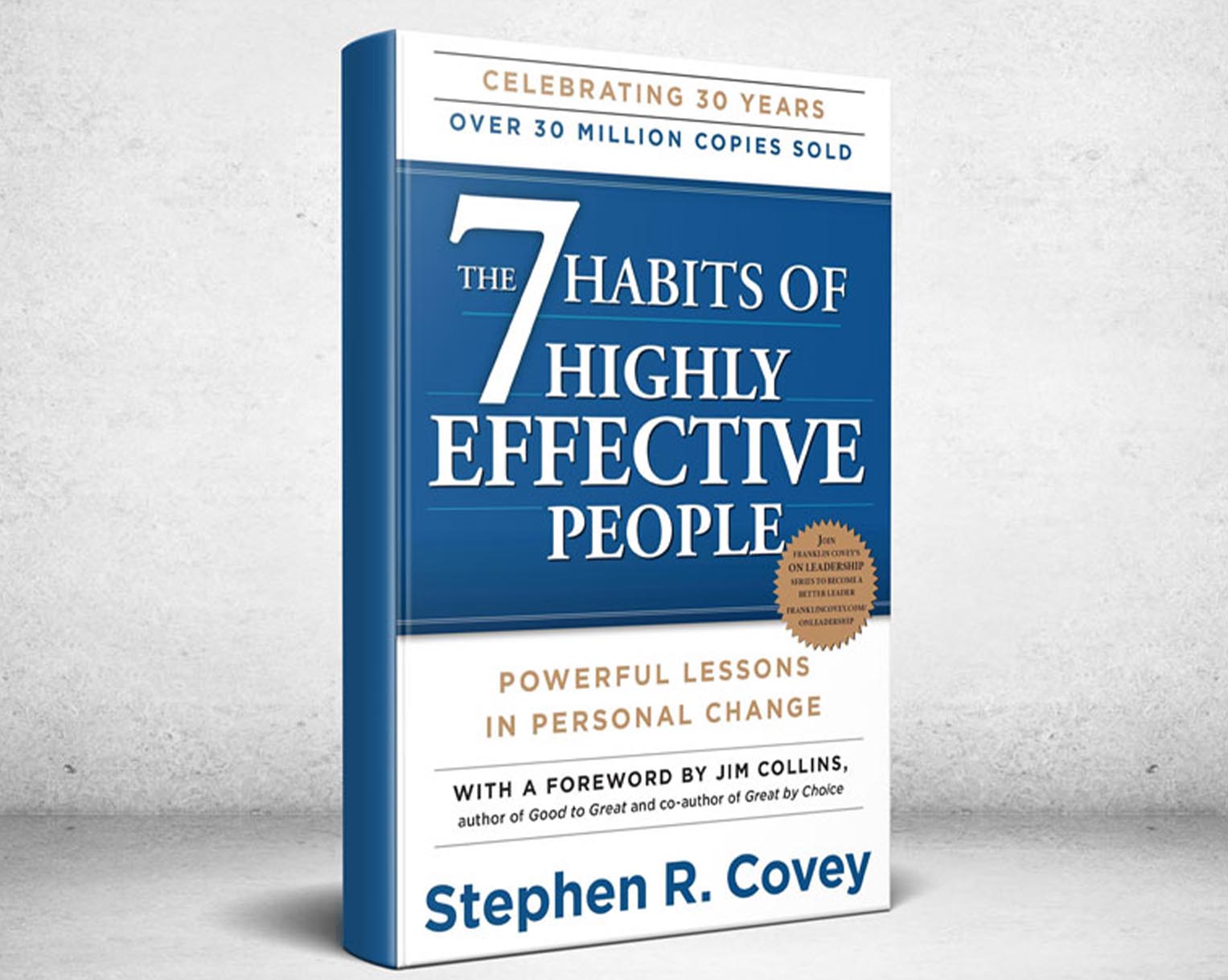
The 7 Habits of Highly Effective People, first published in 1989, is a business and self-help book written by Stephen Covey. Covey presents an approach to being effective in attaining goals by aligning oneself to what he calls "true north" principles based on a character ethic that he presents as universal and timeless.
TABLE OF CONTENTS:
PART ONE: PARADIGMS AND PRINCIPLES
Inside-Out
The 7 Habits—An Overview
PART TWO: PRIVATE VICTORY
HABIT 1: Be Proactive
Principles of Personal Vision
HABIT 2: Begin with the End in Mind
Principles of Personal Leadership
HABIT 3: Put First Things First
Principles of Personal Management
PART THREE: PUBLIC VICTORY
Paradigms of Interdependence HABIT 4: Think Win/Win
Principles of Interpersonal Leadership
HABIT 5: Seek First to Understand, Then to Be Understood
Principles of Empathic Communication
HABIT 6: Synergize
Principles of Creative Cooperation
PART FOUR: RENEWAL
HABIT 7: Sharpen the Saw
Principles of Balanced Self-Renewal
Inside-Out Again
Afterword
ACKNOWLEDGMENTS
Interdependence is a higher value than independence.
This work is a synergistic product of many minds. It began in the middle seventies as I was reviewing 200 years of success literature as part of a doctoral program. I am grateful for the inspiration and wisdom of many thinkers and for the trans-generational sources and roots of this wisdom.
I am also grateful for many students, friends, and colleagues at Brigham Young University and the Covey Leadership Center and for thousands of adults, parents, youth, executives, teachers, and other clients who have tested this material and have given feedback and encouragement. The material and arrangement has slowly evolved and has imbued those who have been sincerely and deeply immersed in it with the conviction that the Seven Habits represent a holistic, integrated approach to personal and interpersonal effectiveness, and that, more than in the individual habits themselves, the real key lies in the relationship among them and in how they are sequenced.
For the development and production of the book itself I feel a deep sense of gratitude:
—to Sandra and to each of our children and their spouses for living lives of integrity and service and for supporting my many travels and involvements outside the home. It’s easy to teach principles loved ones live.
—to my brother John for his constant love, interest, insights and purity of soul. —to the happy memory of my father.
—to my mother for her devotion to her more than 87 living descendants and for her constant demonstrations of love.
—to my dear friends and colleagues in the business, especially:
—to Bill Marre, Ron McMillan, and Lex Watterson for feedback, encouragement, editorial suggestions, and production help.
—to Brad Anderson, who at great personal sacrifice for over a year, developed a Seven Habits video-based development program. Under his leadership this material has been tested and refined and is being implemented by thousands of people across a broad range of organizations. Almost
without exception, after initial exposure to this material, our clients desire to make it available to greater numbers of employees, underscoring our confidence that it “works.”
—to Bob Thiele for helping to create a system for our firm that gave me the peace of mind to enable me to really focus on the book.
—to David Conley for communicating the value and power of the Seven Habits to hundreds of business organizations so that my colleagues, Blaine Lee, Roice Krueger, Roger Merrill, and Al Switzler, and I have the constant opportunity to share ideas in a large variety of settings.
—to my proactive literary agent Jan Miller, and my “can do” associate Greg Link and his assistant Stephanie Smith and Raleen Beckham Wahlin for their creative and courageous marketing leadership.
—to my Simon & Schuster editor Bob Asahina for his professional competence and project leadership, for his many excellent suggestions and for helping me to better understand the difference between writing and speaking.
—to my earlier devoted assistants Shirley and Heather Smith and to my present assistant Marilyn Andrews for a level of loyalty which is truly uncommon.
—to our Executive Excellence magazine editor Ken Shelton for his editing of the first manuscript years ago, for helping refine and test the material in several contexts, and for his integrity and sense of quality.
—to Rebecca Merrill for her invaluable editing and production assistance, for her inner commitment to the material, and for her skill, sensitivity, and carefulness in fulfilling that commitment, and to her husband, Roger, for his wise, synergistic help.
—and to Kay Swim and her son, Gaylord, for their much-appreciated vision which contributed to our organization’s rapid growth.
By Stephen R. Covey
